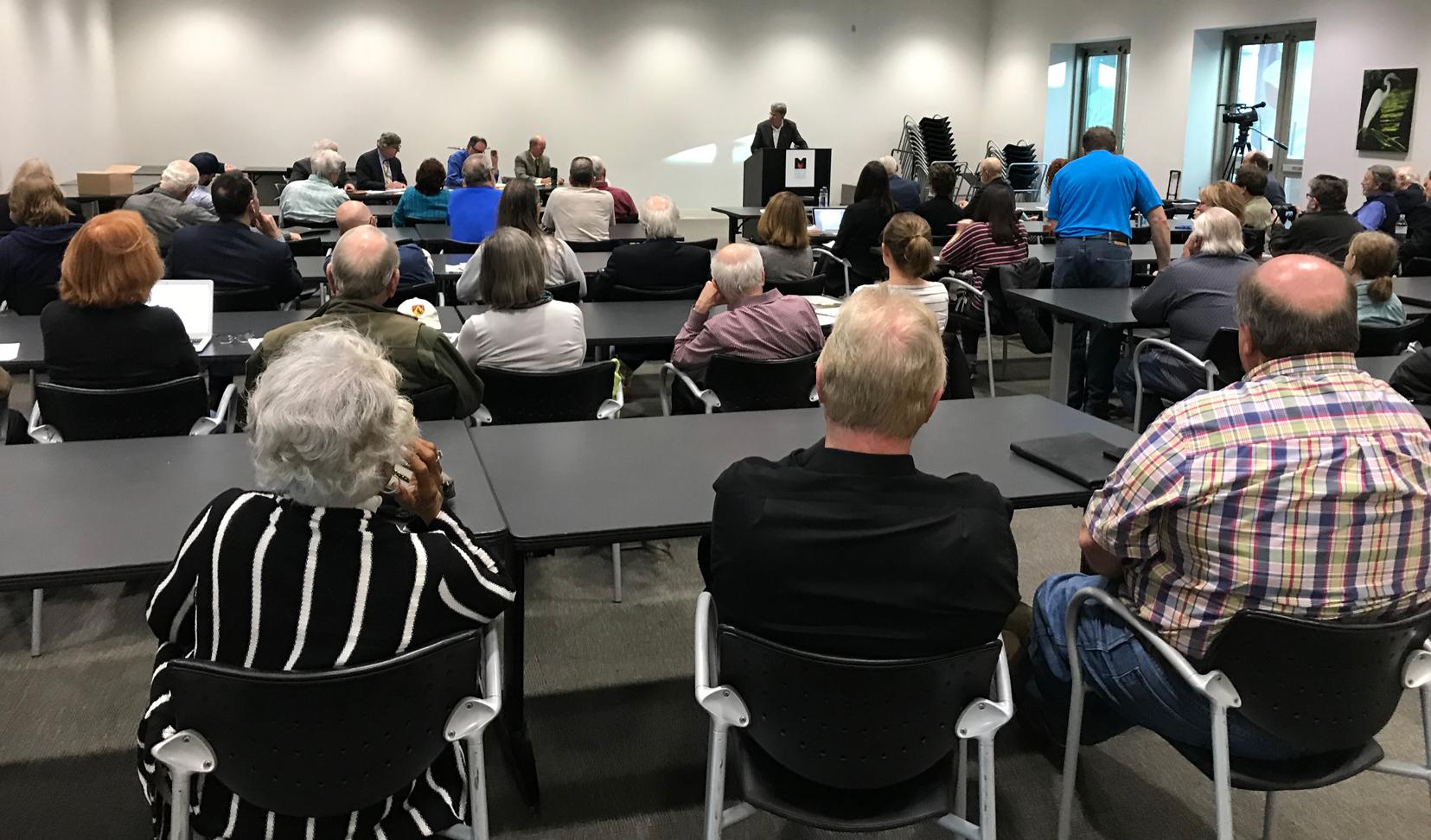SELC, partners push for better protection of Memphis Sand Aquifer at county hearings
Earlier this week, SELC and its partners urged the Shelby County Groundwater Quality Board at a public hearing to enact more stringent protections for the Memphis Sand Aquifer, an important natural and public resource that acts as the city’s primary source of drinking water.
The code revisions come after the Tennessee Valley Authority obtained permits to drill wells into the Memphis Sand Aquifer less than half a mile from an unlined, leaking coal ash pit. The federal utility installed cooling wells at its new gas power plant outside of Memphis and planned to withdraw more than 3.5 million gallons a day from the aquifer.
TVA very simply obtained permits to install wells into our aquifer directly across from an unlined, leaking coal ash pit,” said Ward Archer, president of Protect Our Aquifer. “That is the most toxic area of the city with a long history of dumping and industrial waste. There were no questions asked and public participation in the process was silenced. If the state’s environmental agency had not stepped in late last year, TVA would have begun operating those wells this spring, eventually pulling toxic contaminants into the Memphis Sand Aquifer.
Based on a strong outcry from the public after TVA’s reckless actions became known, members of the county water board proposed new rules late last year designed to better protect the aquifer. Public hearings on those new regulations were held on March 19 and 20. This will mark the first ordinance update since they were enacted back in the 1980’s, when there were fewer demands on the aquifer and less understanding of its geology.
SELC, working with Protect Our Aquifer and the Sierra Club, has argued that, while revisions to the permitting codes to drill wells into groundwater are a step in the right direction, the board should be working to better protect the aquifer against over-consumption and toxic contamination. Representatives of the groups spoke at the public hearings.
Memphis Sand is an excellent aquifer, according to Roy Van Arsdale, professor of geology at the University of Memphis. “It’s one of the best in the world in terms of thickness, aerial content, quality of water,” he told the Memphis Commercial Appeal.
At the public hearings, Archer suggested private well owners should also have to pay a fee for the water they pump out, which would encourage wiser use of the water and fund efforts to better protect and study the aquifer. Under the current system, TVA could have pulled millions of gallons per day from the city’s drinking water source for free.
Groundwater board hears calls for more aquifer protection https://t.co/Q7sTNTdfty via @memphisnews
— Thomas Charlier (@thomasrcharlier) March 20, 2018
SELC and partners are asking that new regulations require a 30-day public notice and comment period and use of best practices to conserve water. Conservation groups also recommended additional changes to the rules, including measures that would maximize conservation, force applicants to prove that drilling won’t contribute to contamination of the aquifer, and ways to better involve the public.

Ward Archer, founder of Protect Our Aquifer, urges Shelby County to adopt stronger protections for Memphis’ drinking water source during a recent public hearing. (@Scott Smallwood/SELC)


